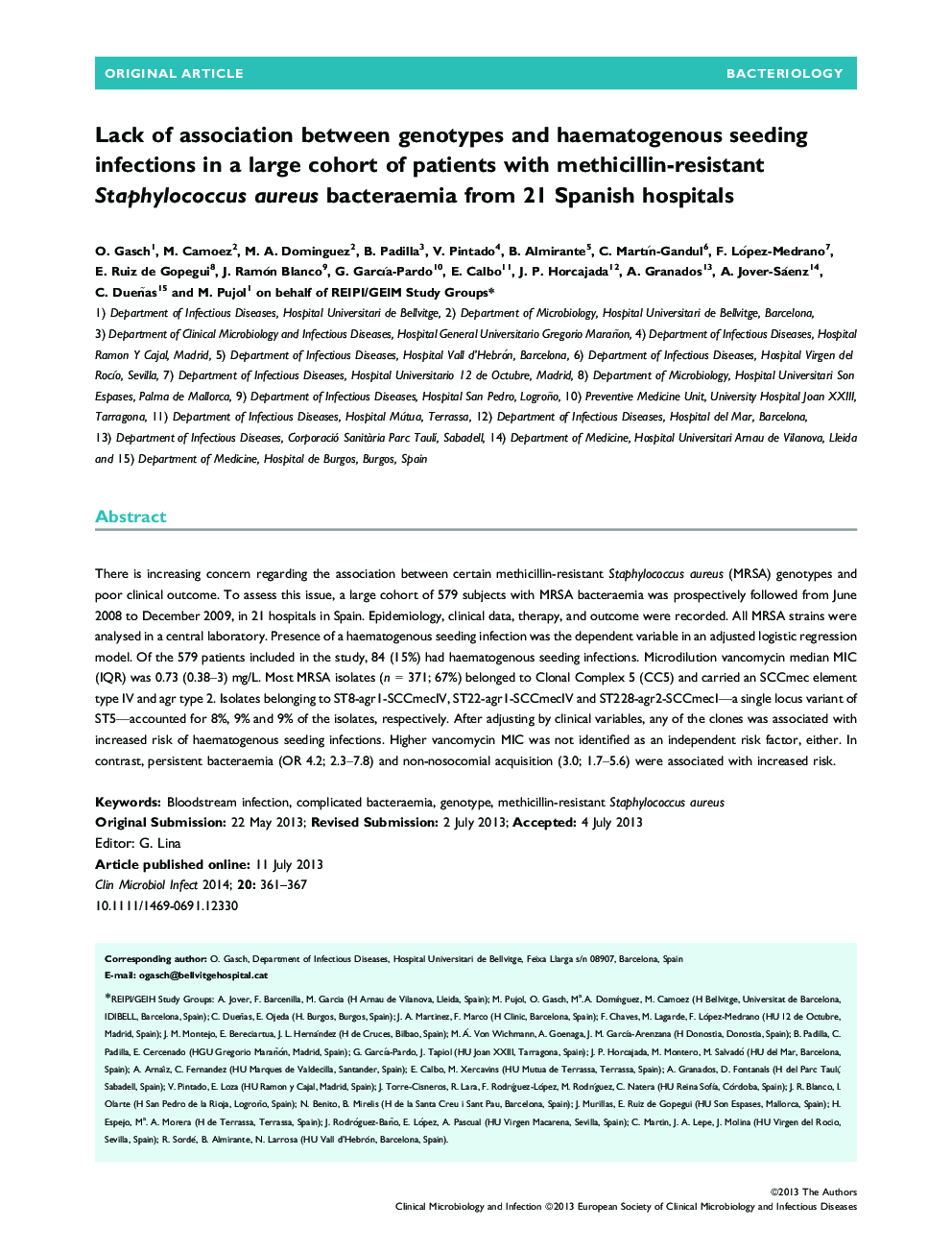| Article ID | Journal | Published Year | Pages | File Type |
|---|---|---|---|---|
| 6130418 | Clinical Microbiology and Infection | 2014 | 7 Pages |
Abstract
There is increasing concern regarding the association between certain methicillin-resistant Staphylococcus aureus (MRSA) genotypes and poor clinical outcome. To assess this issue, a large cohort of 579 subjects with MRSA bacteraemia was prospectively followed from June 2008 to December 2009, in 21 hospitals in Spain. Epidemiology, clinical data, therapy, and outcome were recorded. All MRSA strains were analysed in a central laboratory. Presence of a haematogenous seeding infection was the dependent variable in an adjusted logistic regression model. Of the 579 patients included in the study, 84 (15%) had haematogenous seeding infections. Microdilution vancomycin median MIC (IQR) was 0.73 (0.38-3) mg/L. Most MRSA isolates (n = 371; 67%) belonged to Clonal Complex 5 (CC5) and carried an SCCmec element type IV and agr type 2. Isolates belonging to ST8-agr1-SCCmecIV, ST22-agr1-SCCmecIV and ST228-agr2-SCCmecI-a single locus variant of ST5-accounted for 8%, 9% and 9% of the isolates, respectively. After adjusting by clinical variables, any of the clones was associated with increased risk of haematogenous seeding infections. Higher vancomycin MIC was not identified as an independent risk factor, either. In contrast, persistent bacteraemia (OR 4.2; 2.3-7.8) and non-nosocomial acquisition (3.0; 1.7-5.6) were associated with increased risk.
Related Topics
Life Sciences
Immunology and Microbiology
Microbiology
Authors
O. Gasch, M. Camoez, M.A. Dominguez, B. Padilla, V. Pintado, B. Almirante, C. MartÃn-Gandul, F. López-Medrano, E. Ruiz de Gopegui, J. Ramón Blanco, G. GarcÃa-Pardo, E. Calbo, J.P. Horcajada, A. Granados, A. Jover-Sáenz, C. Dueñas, M. Pujol,
